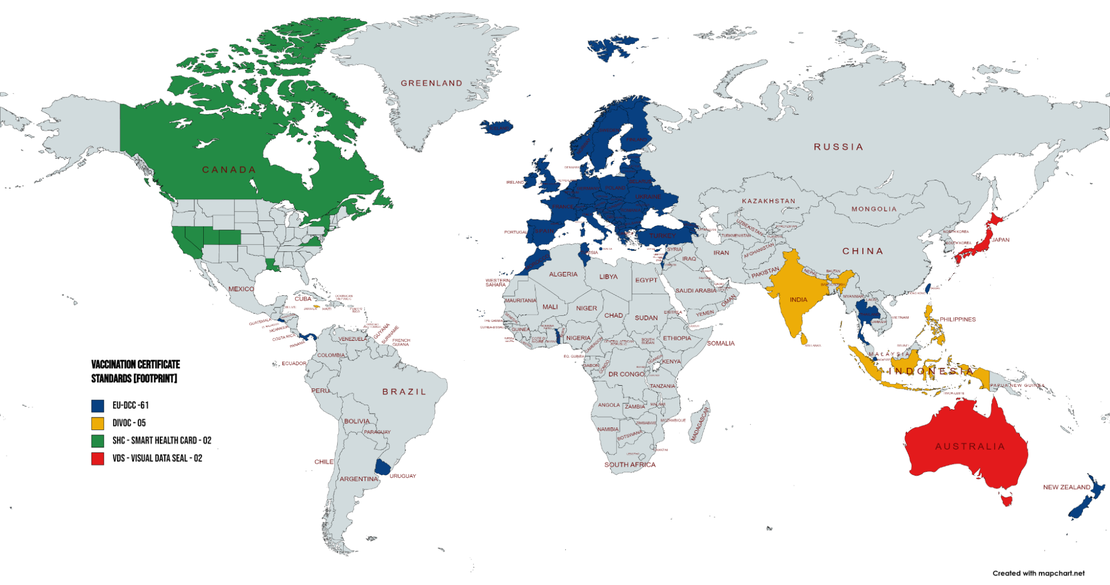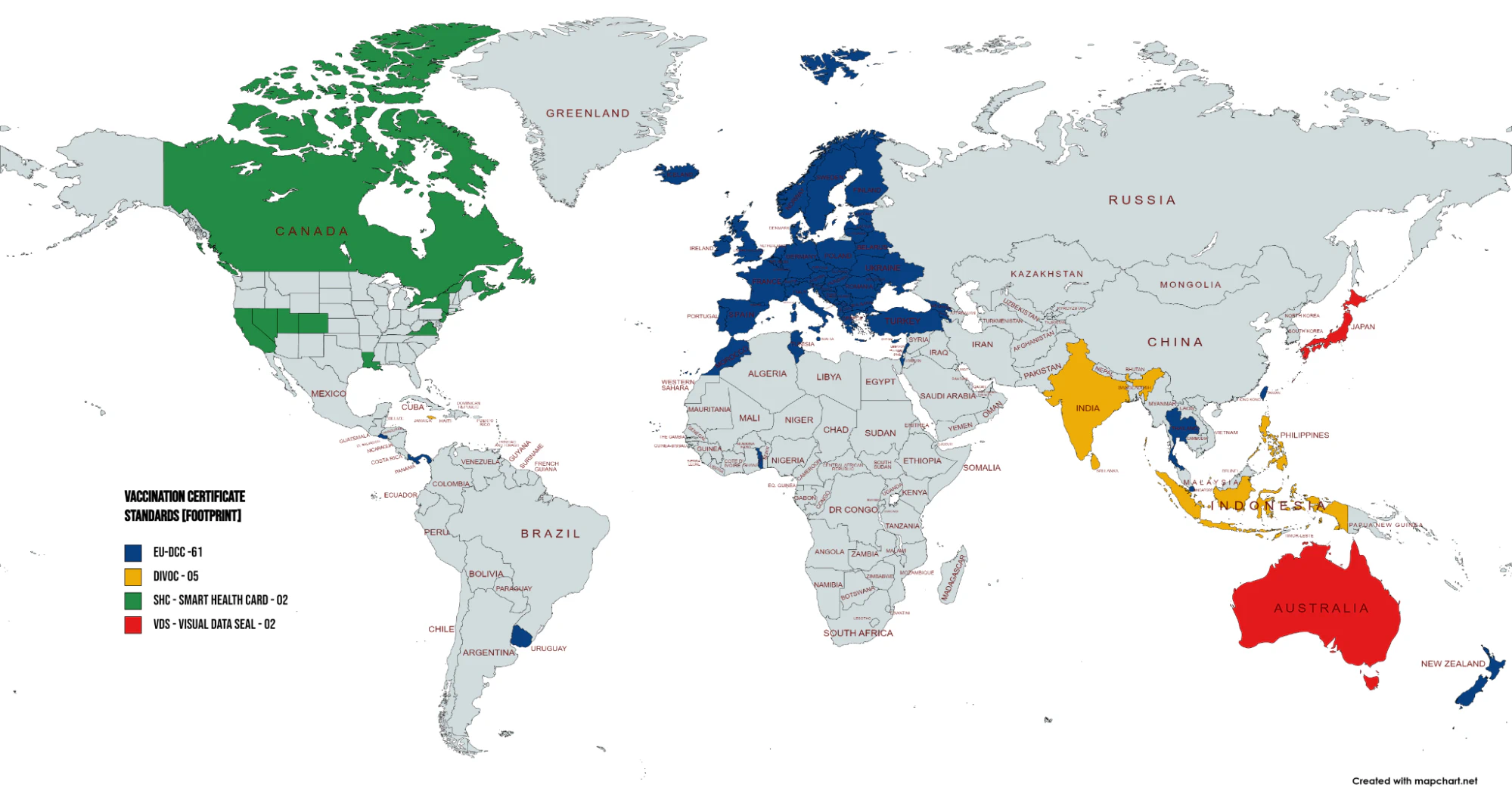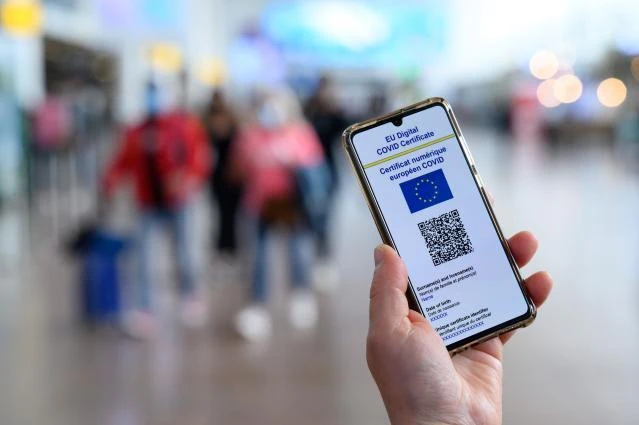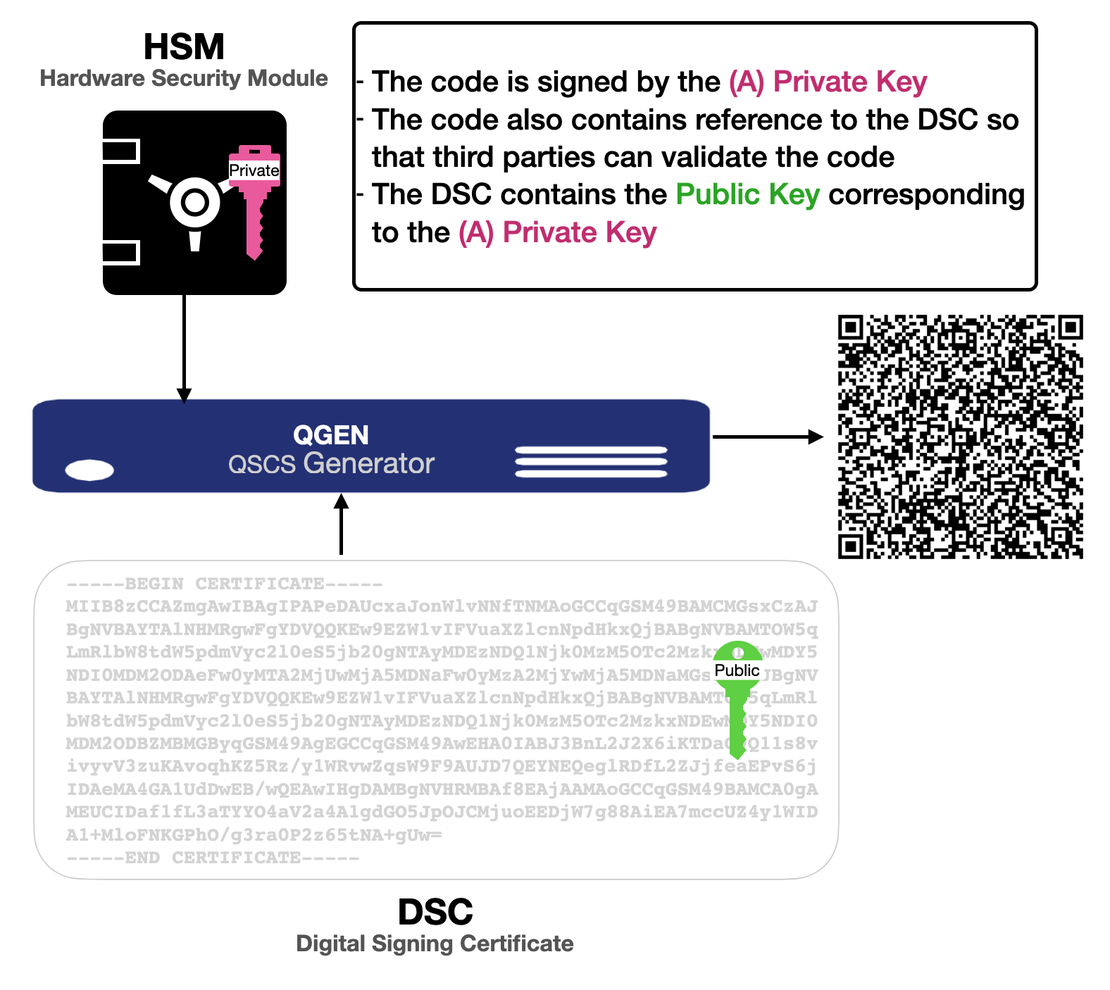The Vaccination Certificate QR Code Standards War is over...
- Rajesh Soundararajan
- Jan 11, 2022
- 5 min read

....and the clear winner is.. EU-DCC !
The verdict is out – EU-DCC has emerged as the de facto standard as more nations have adopted it
Over the last 12-18 months, there has been a war of standards for vaccination certificates. There has been confusion, controversy, conversation, and confabulations on how to issue verifiable Vaccine Certificates with QR Codes. Now, it is evident that the EU-DCC standard has won. And won by a considerable margin at that.
EU-DCC codes are immensely popular even outside the European Union. Some countries which had earlier issued homegrown URL based QR coded vaccination certificates are re-issuing their certificates with EU-DCC compliant codes.
This post covers the following -
The various open source Vaccination Certificate Standards and their adoption (Many countries have their own national specifications but in this post we are considering only standards/specifications used in at least 2 or more countries)
4 reasons explaining why EU-DCC Standard has been adopted by the majority of the countries world-wide
The Open Source Vaccination Standards and their adoption
Smart Health Card (SHC): SMART Health Cards are paper or digital versions of your clinical information, such as vaccination history or test results. They allow you to keep a copy of your records on hand and easily share this information with others if you choose. SHC is dominant only in North America and is being used by Canada and certain US States.
Visual Digital Seal (VDS): A visible digital seal is a cryptographically signed data structure that has document features, encoded as a 2D barcode, and printed on a document
DIVOC: Is another standard which originated out of India and is used for vaccination certificates in India and a few other countries like Sri Lanka, the Philippines, and Indonesia.
Digital COVID Certificate (EU-DCC): EU-DCC has emerged as the most popular standard and below we list the reasons for its popularity. In a future post we will discuss the technical merits of EU-DCC and also some of it’s shortcomings and how it could be improved. Earlier we did a post providing an overview of the EU-DCC trust model.
At a high level all the above standards are similar: vaccination details are encoded and digitally signed and sealed inside a 2D barcode (QR Code). They all support offline validation in some form.
First let us settle the main question: EU-DCC is the most popular standard for issuing Covid Vaccination certificates because it is being used by most countries.
| SHC2 Countries | VDS2 Countries | DIVOC4 Countries | EU-DCC61 Countries |
|---|---|---|---|
| Used by Canada and certain US states like California, Colorado, Hawaii, Louisiana, Nevada, New Jersey, New York, Rhode Island, Utah, Virginia | Australia, Japan | India, Indonesia, Jamaica, Philippines, Sri Lanka | Albania, Andorra, Armenia, Austria, Belgium, Bulgaria, Cabo Verde, Croatia, Cyprus, Czechia, Denmark, El Salvador, Estonia, Faroe Islands, Finland, France, Georgia, Germany, Greece, The Vatican, Hungary, Iceland, Ireland, Israel, Italy, Latvia, Lebanon, Liechtenstein, Lithuania, Luxembourg, Malta, Moldova, Monaco, Montenegro, Morocco, Netherlands, New Zealand, North Macedonia, Norway, Panama, Poland, Portugal, Taiwan, Republic of Moldova, Romania, San Marino, Serbia, Singapore, Slovakia, Slovenia, Spain, Sweden, Switzerland, Thailand, Togo, Tunisia, Turkey, Ukraine, United Arab Emirates, United Kingdom, Uruguay |
The information above has been collated from official sources as of 1-Jan-2022. Please let us know of any inaccuracies
4 reasons on why EU-DCC has been adopted by the majority of the countries world-wide:

d) Virtuous momentum cycle: Since EU-DCC was the first standard to reach critical mass, it naturally started building momentum:
travel industry and border control invested in building tools and systems to process EU-DCC QR Codes at scale
it became the easy and pragmatic choice as other countries looked into deciding which standard to adopt for interoperable vaccination certificates.
Due to the above reasons, EU-DCC has now appeared as the clear leader in adoption as the recommended vaccination standard for all new implementations.

Geographical spread of Vaccination Certificate QR Code Standards
Qryptal and Digital Covid Certificates
At Qryptal, we have been helping fight against Covid-19 for the last two years. We have been commercially active in this space of document security using QR Codes since 2015.
Qryptal EU DCC Solutions are deployed by governments and health authorities looking to issue secure and interoperable the Covid vaccination certificates. Please reach out to us at info@qryptal.com for more information
You may also like -
- Qryptal EU DCC Solutions
- Digital Signing Certificate Management for generating EU Digital COVID Certificates
- EU Digital COVID Certificate | European Commission

